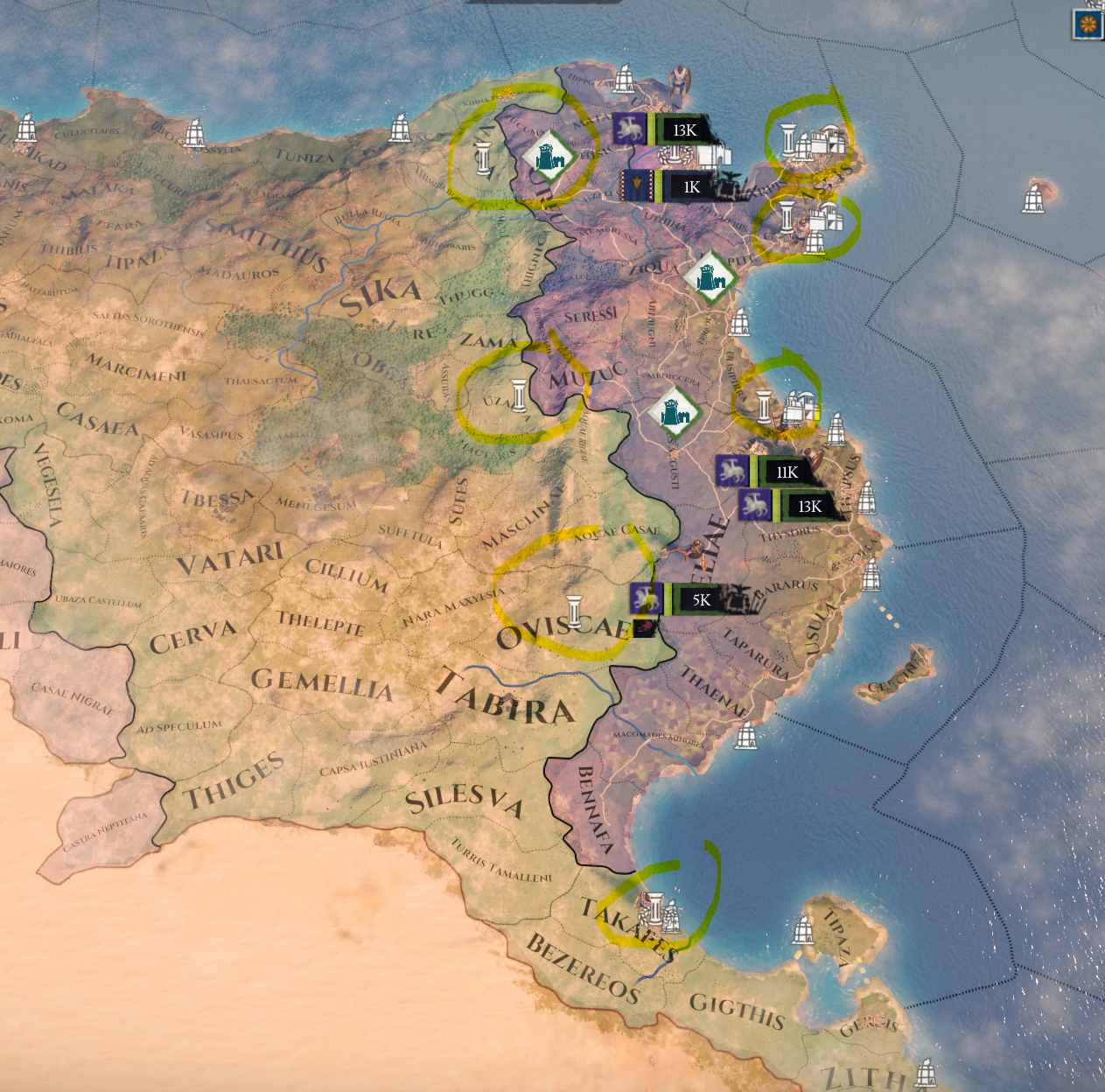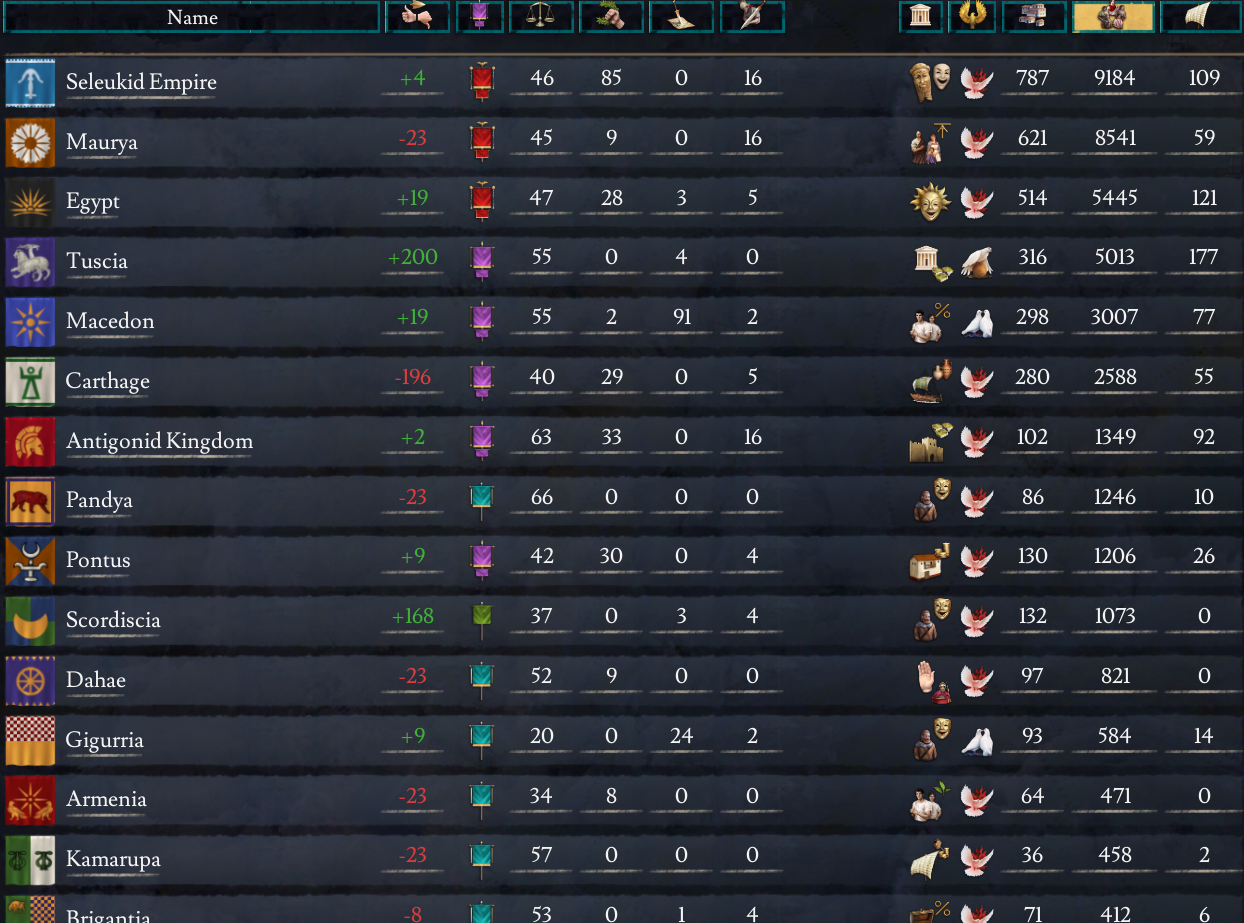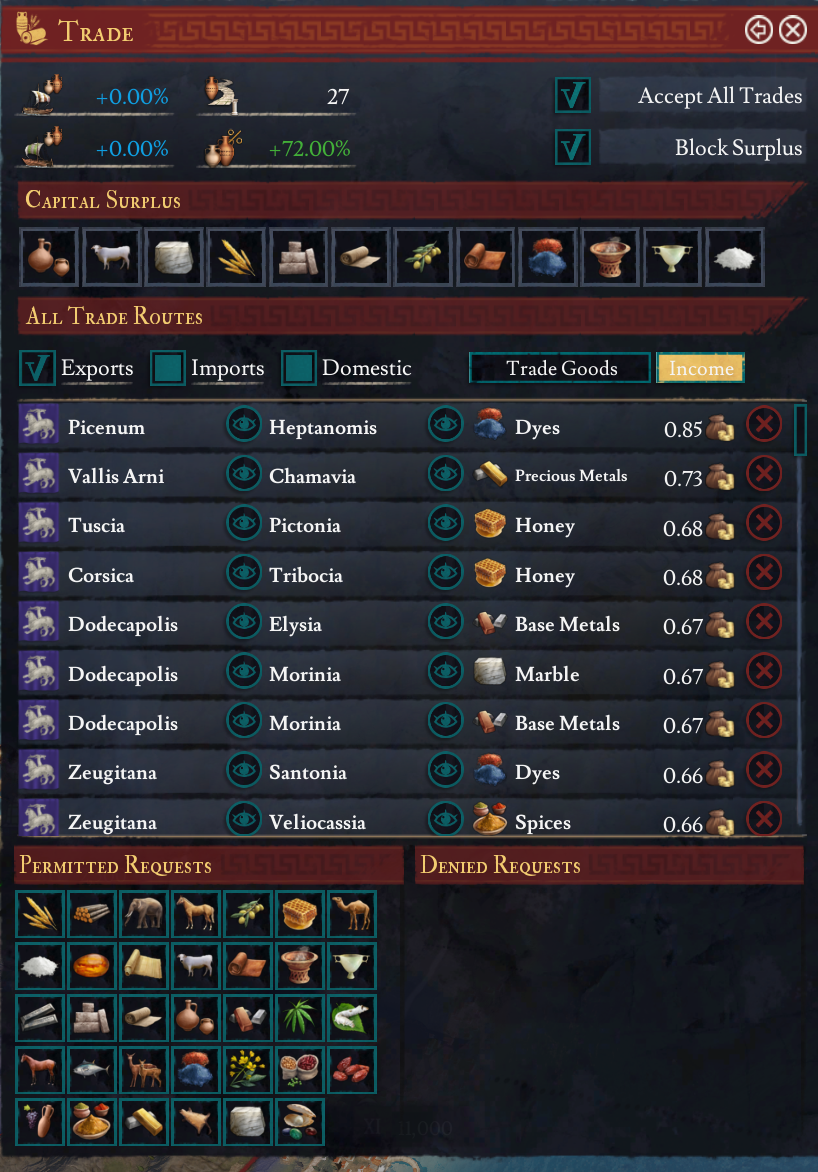This post from @Nak'Arosh has made me wonder what is the most common experience for single player games in I:R related to expansion and AI responsiveness.
My experience is:
What has been your experience?
My experience is:
| Date | Extension/Expansion | Money | AI Responsiveness | Comments |
|---|---|---|---|---|
| 450-470 (start) | Depending on the starting nation, I am very active and for small nations I usually double my territories | Tight | Engaging: Diadochis wars, alliances, aggression from Antagonists or big players | |
| 470-540 (first century) | With 2-3 10K mercs armies and integrated cultures with at least 1,000 POPS (100K levies/ 80K legions) | Enough surplus for investing in buildings but not yet wonders | Muted, no active opposition, they only wait to be gobbled up by me | |
| 540-650 (mid game) | not enough experience | not enough experience | not enough experience | |
| 650-750 (end game) | not enough experience | not enough experience | not enough experience |
What has been your experience?
- 4
- 1




